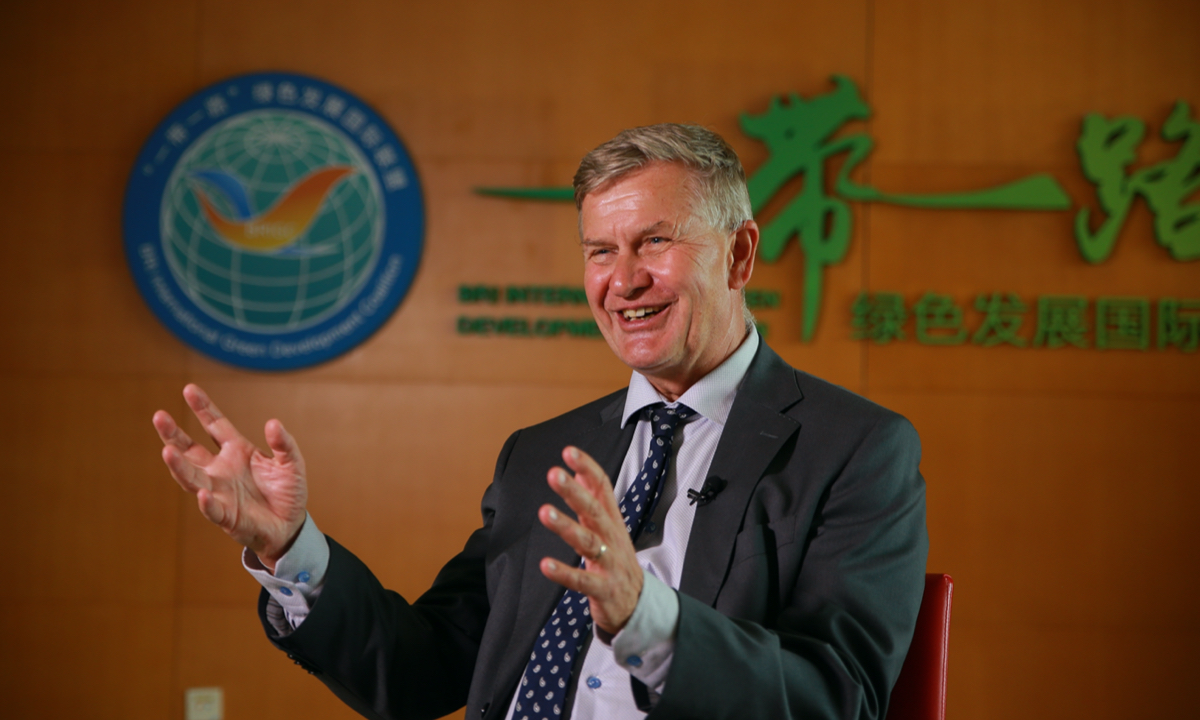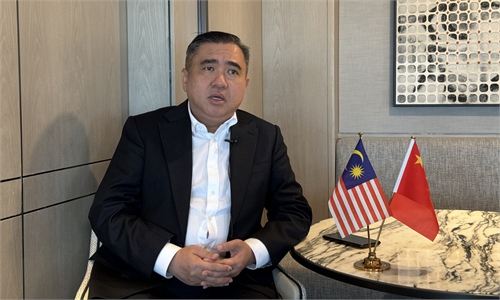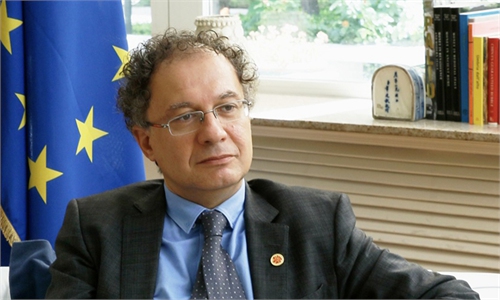
Erik Solheim, co-chair of the Europe-Asia Center and former under-secretary-general of the United Nations Photo:VCG
"The Belt and Road Initiative (BRI) is a great success," Senior Minister of the Kingdom of Cambodia Chhem Kieth Rethy said at a side meeting at the Third Belt and Road Forum for International Cooperation in Beijing on Thursday.
Dr. Rethy took the Phnom Penh-Bavet Expressway, a key connectivity project that links the Cambodian capital with Bavet, a town on the border with Vietnam, offering it as an example to demonstrate his comment.
Before that highway existed, it took five to six hours to get to the border on a crowded small road. There were also a lot of traffic accidents, which hindered the flow of goods as well, but now this highway has improved the situation thanks to the BRI, he said.
It is not only about saving time, but saving life because now there are fewer traffic accidents, Dr. Rethy said. It has also cut logistics costs for Cambodian companies and international companies that have set up their business in Cambodia, "and therefore their profit margin has increased," he said.
This year marks the 10th anniversary of the BRI. On Tuesday and Wednesday, 151 countries, 41 international organizations and more than 10,000 delegates gathered in Beijing and attended the third Belt and Road Forum for International Cooperation in Beijing. This was a loud slap in the face for those who have criticized the BRI over the past decade, global experts said at the meeting. The attendance of so many people already demonstrated the popularity and the influence of the BRI, they noted.
Criticism stems from jealousy
By June 2023, China had signed more than 200 BRI cooperation agreements with more than 150 countries and 30 international organizations across five continents, yielding a number of signature projects and small-scale yet impactful projects.
Regardless of the BRI's significant contribution to the development of partner countries and regions, Chinese overseas projects and enterprises have faced repeated scrutiny and criticism, particularly from the Western media. These accusations primarily revolve around a few key points, such as claims about a "debt trap," harm to the environment and Chinese companies' dominance in the projects.
The debt trap criticism is "frankly pure and simple anti-Chinese propaganda, nothing more," Erik Solheim, co-chair of the Europe-Asia Center and former under-secretary-general of the United Nations, said during his keynote speech at the side meeting.
"The criticism is not fair. The BRI is not a debt trap as some people claim. On the contrary, there is a lot more debt owed by developing countries to the West than to China," Solheim told the Global Times.
African governments owe three times more debt to Western banks, asset managers and oil traders than to China, and are charged double the interest, according to research released in July 2022 by Debt Justice. Just 12 percent of African governments' external debt is owed to Chinese lenders compared to 35 percent owed to Western private lenders, the report stated, based on World Bank data.
Green and bright future
Looking forward, Solheim said "the future of the BRI is very bright."
The key to the development of the world in the next decade as well as the future of the BRI is green development, with key areas being renewable energy such as solar and wind power or hydrogen, he said.
"China has so much to offer to other developing countries through the BRI and green corridors like rail corridors in Africa and Kenya and the one connecting Laos and China's Yunnan. There are so many others. So we see this green development that is happening very fast and the BRI is the main promoter of that," Solheim noted.
Cooperation in other areas such as education, art, culture, heritage and health will also draw more attention in the future. Climate change and management of artificial intelligence technologies also call for more cooperation, experts noted at the side meeting.
As for the criticism of the BRI, Solheim said it will continue but will probably weaken, adding that the West should figure out a different approach rather than competing with China.
A lot of the criticism of the BRI has come from US sources and mainly from people who really want to detract from the BRI. This is based on some kind of jealousy from the US as it struggles to compete with China.
But why not try to complement China instead, Solheim asked. "The US has not constructed 1 kilometer of high-speed rail in the American continent, while China has constructed about 4,000 kilometers in the last 15 years. So how likely is it that the US can compete with China in something they cannot do at home?"
Solheim made other suggestions, saying that investment in technology and the medical industry should be made available for developing countries in a completely new way. Also, "students in Africa and Latin America would love to go to Harvard and Stanford. Why not open up for more students to come to American universities? This will complement rather than compete with the BRI," he said.



